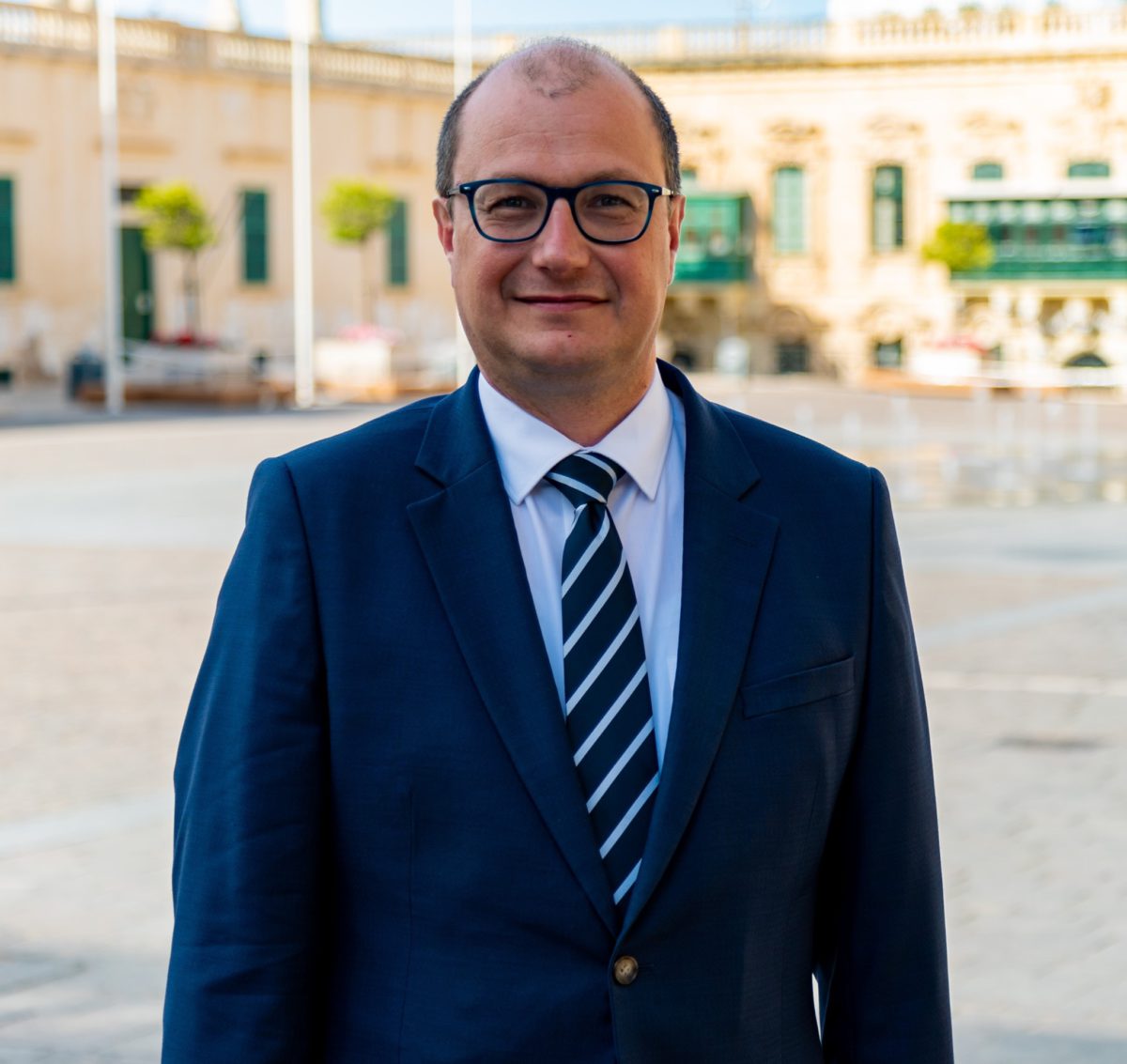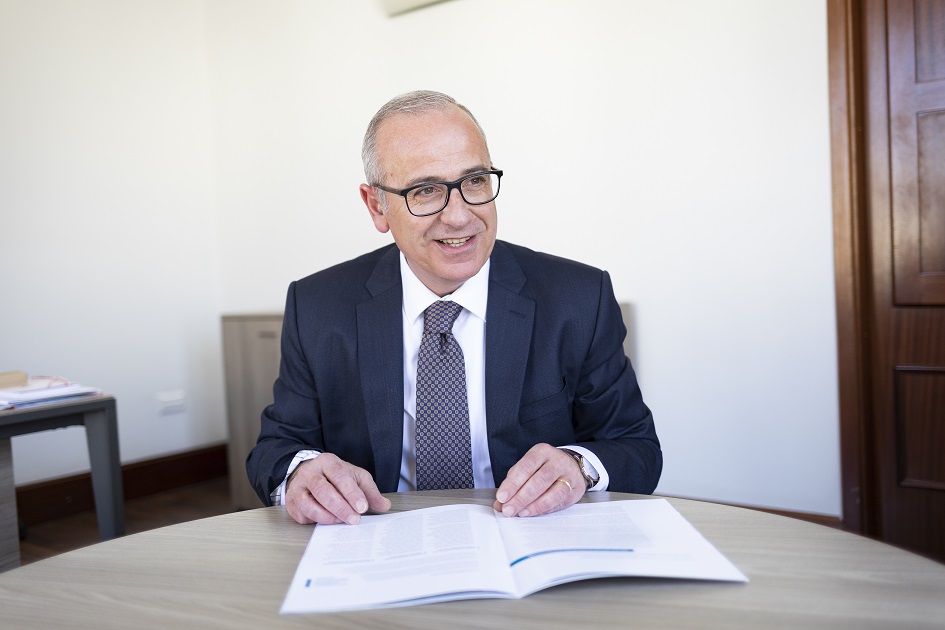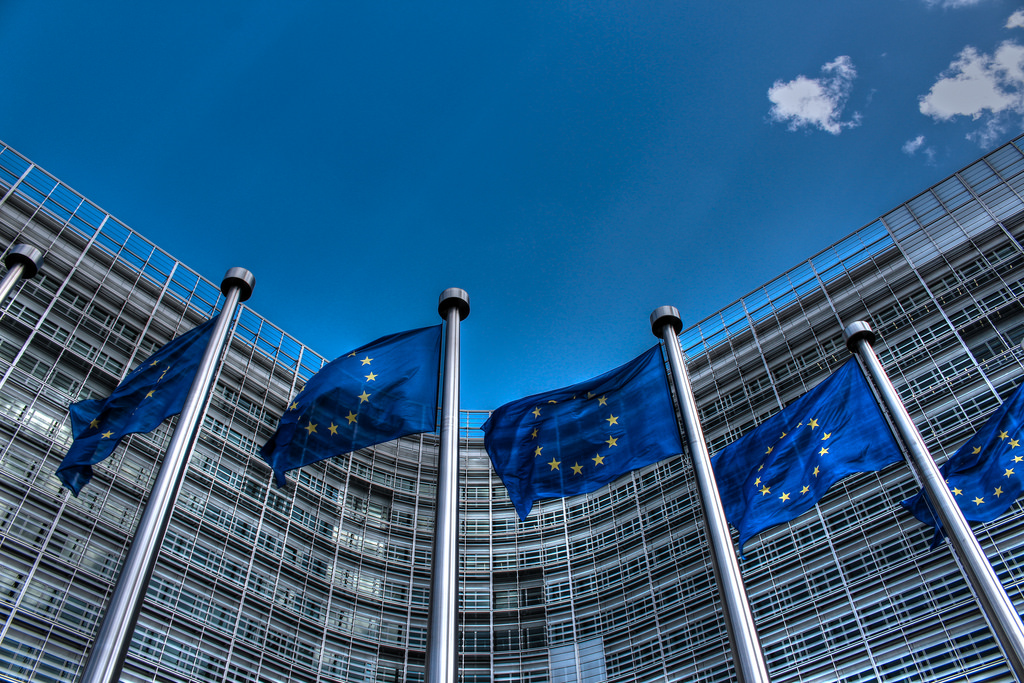In July of this year, as economies across the European continent experienced a respite in lower COVID-19 case numbers, an intense four-day summit was held in Brussels.
Representatives and negotiators from all 27 countries in the bloc attended to discuss and agree on the budget for the EU’s next seven-year Multiannual Financial Framework (MFF), 2021- 2027.
As with previous similar discussions, provisions were hotly debated, but, this time, Europe had to come together and find a solution to a pressing problem: how to survive in an era marked by a global pandemic, climate change and political upheavals across the continent.
The key was a commitment to solidarity – one of the bloc’s founding values. And, indeed, as the summit drew to a close, it was clear each country would dig deep in an attempt to confront the existential challenges facing its people, and its businesses.
To that end, a colossal €1.8 trillion budget was agreed upon – with €750 billion earmarked towards a dedicated Coronavirus fund, Next Generation EU, while the remaining €1 trillion fell under the MFF.
Of these, Malta’s negotiators managed to secure €2.27 billion – €1.923 billion as part of the MFF, and €347 million as part of the newly set-up recovery fund – a staggering amount for such a small economy and a sign of the Union’s renewed dedication to ensure no one gets left behind.
These amounts also represent an acknowledgement of the island’s position as an integral member of the European family, with the funds secured increasing over the 2013-2020 period, during which €1.1 billion had been allocated to the country.

However, for Parliamentary Secretary for European Funds, Stefan Zrinzo Azzopardi, this investment in the country is more than just a symbol of collaboration across the EU, but it’s an integral element in Malta’s continued development.
“The EU funds that Malta has acquired since its accession to the EU have financed various important projects and initiatives. In these unprecedented times, EU funding shall serve as a means to continue our ongoing investment in our country’s main pillars,” he asserts.
This year, the funds allocated will, in his view, provide the necessary resources to meet the challenges of our times. Indeed, the Parliamentary Secretary notes that the cash injection will complement national funds already being earmarked by the Maltese Government to be used in a spate of initiatives with the aim of buffering the local economy from the ravages of the pandemic.
“The way forward is that the funds acquired by Malta are invested in the best manner possible in aid of economic recovery whilst achieving the short-term and long-term targets that have been set,” he asserts.
Elaborating, Dr Zrinzo Azzopardi refers back to the recovery fund – which is further split into two streams, REACT-EU and a Recovery and Resilience Facility – and underlines that “as a response to the negative effects of the pandemic, the EU has provided specific measures to give aid to those countries which were falling behind, especially economically.
The REACT-EU and the Recovery and Resilience Facility are funds created to support countries financially and help them to develop a more sustainable economy respecting the environment whilst investing in digitalisation,” he explains.
The former, REACT-EU, comprising €112 million of the total monies allocated to Malta, will partly be financing the continued distribution of the Wage Supplement Scheme in Malta. “This measure has saved jobs. The financing of the Wage Supplement is one of the important measures that has helped various economic sectors weather the negative effects of the pandemic,” the Parliamentary Secretary points out.
In the meantime, the Recovery and Resilience Facility, accounting for €220 million given to Malta in grants, will help deal with the fallout created by COVID-19, as well as aid the remedy of some of the islands’ most pressing issues in the realms of the environment and the rule of law.
Here, “a minimum of 20 per cent are ring fenced for digitalisation, and 37 per cent for the greening of the economy. These funds must also finance projects that respond to the specific country recommendations which include reforms in the judicial sector, education and other social reforms,” he explains.
It is clear that sustainability remains at the forefront in the list of priorities for the Union and, as a result, the lion’s share of Malta’s allocation will need to go towards ensuring a healthy, vibrant future for the island, based upon five main pillars, as referenced by the Parliamentary Secretary: the environment, infrastructure, education and employment, as well as carbon neutrality.
“These are in line with the European Union’s vision and will be our priority when planning the use of such funds,” he says, also referring to the Government’s aim to “achieve carbon neutrality by 2050 [which] shall require a lot of concerted action on the way our economy works and a number of the actions required shall be financed with the funds we have gained.”
In line with this, approximately €713 million of the MFF allocation has been earmarked as part of the Cohesion and Regional Development Funds, promoting digitalisation, business competitiveness as well as research and innovation, the Parliamentary Secretary continues to explain, saying that the “traditional and essential sectors will also be allocated funds to ensure we keep developing, creating a more sustainable environment and transport system, and better health services whilst investing also in the preservation of our environment.”
Moreover, €124 million of the MFF allocation falls within the sphere of the European Social Funds (ESF+), which focuses on skills acquisition and job retraining, and which will “provide further support to those who are not in education, or employment, giving them further training so they increase their chances of employability.”
This will be done “in conjunction with further training given to professionals to improve services rendered in various sectors including the education, social and health sectors.”

For the CEO of the Malta Business Bureau, Joe Tanti, the budget given to Malta will have a positive domino effect, in that it will encourage the availability of other forms of capital and reserves. “EU funds are a direct injection into the Maltese economy as they mobilise resources for specific projects and policy priorities that otherwise would not be possible to implement so soon as one would wish for,” he explains.
Echoing the Parliamentary Secretary, Mr Tanti refers to the priorities of environmental sustainability and digital transformation, saying that the funds will help member states make the necessary investments to become carbon neutral by 2050, as well as invest in digital “infrastructure, processes, and people skills.”
Honing in on the €1.923 billion from the seven-year MFF 2021-2027 – which aims to finance projects falling under the EU’s cohesion policy, as well as in the realms of agriculture, Erasmus+, migration, security and the environment – Mr Tanti underscores the importance of cohesion funding, saying that this possesses “a very important purpose to help member states in the continuous process of modernising and to provide a higher standard of living to the people”. He further explains that these moneys finance “different areas of the economy.”
With this knowledge, the Government, he says, should do its utmost to ensure the funds are disbursed “efficiently and in a timely manner.” By way of example – and to elaborate on how the funds can ameliorate specific industries – he refers to the difficulties being faced by the agricultural community, particularly in the wake of the pandemic, and how the challenges being faced by farmers have a concomitant effect on the way Maltese consume food.
“The recent COVID-19 crisis, for instance, has shown the importance of food security. This is more pertinent in the case of islands, and, thus, special attention should be given in supporting and incentivising local farmers, food processors and catering establishments to produce and prepare food more sustainably,” he says.
Safeguarding the environment is an integral part of not only ensuring food security and the longevity of Malta’s farmers, but also of nurturing a sense of wellbeing on the island, though this is not limited to ‘simply’ protecting nature, but it goes beyond towards a reconceptualisation of our infrastructure. Indeed, he continues, “further investment is required to create open spaces, but also in smart transportation systems and to make buildings more energy efficient,” he asserts.
Focusing on the COVID-19 recovery instrument, Mr Tanti said that the Union’s Next Generation and Recovery Plan is “a landmark initiative where the EU will raise funding from international markets to then distribute to member states in the form of grants and loans to support their recovery.
This provides countries with the required cash injection to put into their economies, but also gives them the ability to access low interest debt thanks to the EU’s credit rating,” he explains. To access the moneys, “every member state has been invited to draft a national recovery plan, which will be the basis to receive this EU funding.”
He notes that Malta is facing particular challenges due to its reliance on tourism – occupying a large share of the island’s Gross Domestic Product – a sector which has been all but decimated as a result of the pandemic.
Moreover, “as the international economy dips further into an economic depression, exports and retail are also expected to decline for a considerable time. This means that several sectors of our economy will require continued public support to survive and to preserve jobs.”
Addressing these shortfalls is “an immediate economic priority”, the CEO stresses, and “Government would do well to make use of these funds at its disposal by the EU”. However, the onus also falls on businesses in Malta themselves, which “should also use this time to reflect on how to regenerate their business models in order to come out stronger and more competitive beyond the COVID-19 crisis.”
Concluding, Mr Tanti refers to other sources of EU funding which can help local companies, and he outlines the myriad ways in which the MBB can facilitate access. “For years, the MBB has been advocating for businesses to consider tapping into EU funding, particularly direct funding from Brussels [in order] to complement their own investments and to make their businesses more competitive,” he explains.
To this end, the MBB is also in the process of preparing a detailed report “on the experience of Maltese business with tapping EU funding and looking at identifying the perceptions or practical challenges they encounter.”
This, he says, “will help us understand and to make recommendations on the awareness, structural and practical support that companies need to become more successful in tapping EU funding, which ultimately benefits them, and the economy in general.”
Since the interviews were carried out, agreement was reached with the European Parliament on the final amounts, but approval is still pending at Council level
This is an extract of a feature first carried in the November 2020 edition of Business Agenda. To read the full feature, click here.
Employers take umbrage at video promoting public sector’s flexible work arrangements
The video outlines a range of flexibility options available to public sector employees
Malta’s inflation eases to 2.5% in January as food prices remain main driver
While overall inflation continued to moderate at the start of the year, price pressures remain uneven across categories
Final call for food and beverage manufacturers to exhibit at SIAL Paris
SIAL Paris is one of the world’s leading international food and beverage exhibitions






